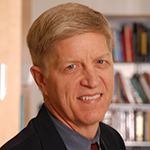
Tashatuvango / shutterstock.com
Daniel Solomon, MD, MPH, has practiced rheumatology for more than 20 years, all while conducting translational and clinical research and teaching young clinicians. Soon, he will also step into the role of editor in chief of Arthritis & Rheumatology, as Richard J. Bucala, MD, PhD, ends his tenure. He will assume some duties during a transition period starting April 1, 2020, and serve his term from July 1, 2020, to June 30, 2025.
Arthritis & Rheumatology (A&R) is one of three journals published by the ACR and is focused on high-quality basic, translational and clinical research in rheumatology. The ACR also publishes the open-access journal ACR Open Rheumatology and, with the ARP, Arthritis Care & Research.
Dr. Solomon has an impressive list of accomplishments. He has published more than 400 articles, chairs the U.S. Food & Drug Administration’s Arthritis Advisory Committee, led the ACR Blue Ribbon Panel that set recommendations for non-steroidal anti-inflammatory drugs (NSAIDs) and conducted numerous large-scale trials to improve osteoporosis care.
He is a physician at Brigham and Women’s Hospital, Boston, where he serves as chief of the section of clinical sciences in the Division of Rheumatology and is on the faculty at Harvard Medical School. His research is focused on drug effectiveness and safety, osteoporosis care and the cardiovascular implications of rheumatoid arthritis and related treatment. He is fluent in medical Spanish, which comes in handy serving the large Hispanic population in the Boston area.
Get to know Dr. Solomon in the following Q&A:
The Rheumatologist (TR): Tell us about yourself as a clinician. How did you become a rheumatologist?
Dr. Solomon: I have always been interested in chronic care, not specialties [in which] you see a patient once or twice, but in longitudinal relationships with patients. And, like many rheumatologists, I’m interested in the mysteries of the immune system and the evolving therapeutic armamentarium. The diseases attracted me to rheumatology as a resident, and the rest is history.
Being in an academic medical center suits me well; as someone who spends a lot of time performing research, teaching and publishing, [I find] the hospital setting is ideal.
I have been involved in a number of quality improvement projects in the clinic. Most recently, we engaged in using tablet computers in the waiting room to enhance patient reporting of outcomes while waiting to see the rheumatologist. Other quality improvement work has involved better implementation of treat-to-target [strategies] for rheumatoid arthritis (RA) as well as improving collaborative care for common co-morbidities in rheumatic disease patients, such as osteoporosis and cardiovascular disease.
TR: Can you talk a bit more about your research? What do you focus on?
Dr. Solomon: I focus on the effectiveness of rheumatology treatments. I spent the first decade of my research career focused on drug safety epidemiology (pharmacoepidemiology), conducting early studies on the cardiovascular safety of NSAIDs, coxibs [COX-2 inhibitors] and opioids. We also examined infection and cancer risks associated with biologic disease-modifying anti-rheumatic drugs. My current work involves conducting and analyzing large trials examining the safety of methotrexate and the cardiovascular impact of tumor necrosis factor antagonists.
Another area that I have a growing interest in is the use of digital health technology in rheumatology. This area will grow in importance, and it is up to rheumatologists to lead the way.
TR: What drew you to the role of A&R editor in chief?
Dr. Solomon: I’ve been involved in ACR journals for the better part of 15 years. I was originally an associate editor of Arthritis Care & Research and then an associate editor of Arthritis & Rheumatology. In the past five years, I have served as Rick Bucala’s deputy editor at A&R, which provided an education in medical publishing and editing.
As a researcher and someone who spends a lot of time writing, researching and critiquing the literature, shaping the rheumatology literature as part of the editorial board of ACR journals felt like an important role. I can help people understand the importance of research and the clinical relevance of accurate and clear reporting of research. I greatly enjoy good writing and have learned to help trainees and other authors improve the clarity of their prose.
TR: Why do you think research is important in rheumatology?
Dr. Solomon: Research is an essential part of healthcare. The practice of medicine must continually evolve through research and education. Research is the backbone of medicine and rheumatology. By studying the best ways to diagnose, treat and manage patients, we can give patients the best care possible. I would also conjecture that the more academic and research focused clinicians are, the more systematic they are in their thinking about how to care for patients: They question their assumptions, look for better answers and, therefore, give more thoughtful care to patients. Once you get curious about how to best care for patients, the next step is to figure out the best way to treat and diagnose. Curiosity and the desire to better care for patients are what drive my research engine.
TR: What are your goals for A&R? What opportunities do you see? Are there challenges?
Dr. Solomon: There are several things I hope to do in my term as editor in chief. One is to be able to better serve the authors and readership by continuing to improve accessibility to the best rheumatology literature. This is accomplished through a number of channels, with social media assuming an ever-growing role.
Social media increasingly helps let the broader community know about important new findings. We want to amplify the message about relevant and valid research being published in A&R, as well as across all of [the] ACR’s journals. Podcasts are something we’re considering, as well as an improved website experience.



